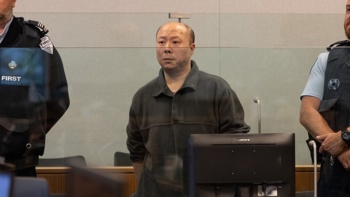
- Rest homes, hospices and care homes could be required to allow assisted dying under a Ministry of Health proposal
- Religious institutions and palliative care facilities object, saying they have a right to refuse deaths on their premises
- Advocates and doctors say some patients have had to be transferred to alternative - sometimes unusual - places while severely ill
After a rest home refused to allow a severely ill resident to have an assisted death on the premises, his family were caught in a difficult position.
The Hamilton man’s relatives were in Auckland, which was too far for him to travel in his poor condition.
The rest home had allowed him to be assessed for assisted dying onsite but was completely against him dying at the facility.
In the end, the patient died in a farm paddock.
The family arranged for him to be driven 30 minutes to a friend’s property and he received the lethal dose from a doctor in back of a ute.
“It was inconvenient, to say the least,” said the doctor, who cannot be named under assisted dying laws.
While the patient was “thrilled” with the last-minute solution, the doctor felt it should have never been required.
“It is a sad state of affairs, because most people who move into a rest home don’t have another home.”
New Zealanders now have the right to an assisted death - but they cannot always die where they want to.
The doctor believes rest homes and other facilities where people live should be required to allow their patients to die on the premises. The Ministry of Health, after reviewing the law, has agreed.
The ministry says that individuals should be able to object to taking part in any part of the process but organisations should not. The ministry’s recommendation is that “care facilities” including rest homes, hospices, residential care facilities and public and private hospitals should be required to “provide reasonable access to assisted dying” if the person lives there full time.
That means a facility would not be able to stop a doctor from assessing a patient for assisted dying or helping them to die onsite. If the patient was well enough to be transferred to another site, the facility would have to arrange this.
They would also have to provide contact details to the Assisted Dying Service if asked.
Any attempt to change the law is likely to face strong opposition and raise debates about the limits of conscientious objection.
Many retirement villages or care homes are owned by religious orders which object to assisted dying. Some of those facilities have found a workaround by transferring patients to another site for an assisted death.
“The current ability for institutions to exercise conscience must be protected,” said the New Zealand Catholic Bioethics Centre, an agency within the Catholic Church.
“Such a change could bring about a significant impact on the atmosphere of these places and on the ability of the staff there to work in ways that support their approach to healthcare.”
Hospice New Zealand chief executive Wayne Naylor said that while hospices allowed their residents to be assessed for assisted dying, most of them drew the line at allowing the actual death to take place on the premises.
Naylor questioned whether the Government would be able to compel an organisation to provide assisted dying within their facility without breaching the Bill of Rights.
A High Court judgement in 2020 said that hospices and other organisations were entitled to choose not to provide assisted dying services, which was consistent with the right to freedom of conscience.
“Allowing, and potentially enforcing, [assisted dying] practitioners to enter a facility and perform an assisted death could be extremely traumatic for other residents, patients and staff,” Naylor said.
 Hospice NZ chief executive Wayne Naylor. Photo / Hagan Hopkins
Hospice NZ chief executive Wayne Naylor. Photo / Hagan Hopkins
Assisted dying advocates, on the other hand, said organisations which do not allow assisted deaths were being obstructive, possibly illegally.
“We do not ask conscientious objectors to personally involve themselves in a service they do not want to provide, but to allow applicants easy access to assisted dying doctors or nurse practitioners as third parties,” said End of Life Choice Society president Ann David.
Organisations were not sentient beings and therefore could not make a conscientious objection, she added.
Another option considered by the ministry was dedicated, independent units for assisted deaths, which are used in other jurisdictions. This option did not make it into its final recommendations.
The debate over where a person can die is part of a broader problem identified with assisted dying in New Zealand. Three years after it was introduced, the Assisted Dying Service is still not seen as a recognised, normalised part of the health system and is not widely known or understood.
The ministry has made several recommendations to address this problem, including a relaxation of the strict limits around what doctors can discuss with their patients and what information can be publicly shared on assisted dying.
The Government has no intention of adopting the ministry’s proposals, leaving any changes to a private member’s bill. Act MP Todd Stephenson has drafted a law change which focuses narrowly on removing one of the eligibility criteria for assisted dying, but he has said that he will consider expanding it to include other ministry recommendations.
During the ministry’s review, it heard from the child of a hospitalised patient who was immobile and dependent on fentanyl for chronic pain. The male patient was told they could not have an assisted death at the hospital, nor could they take their fentanyl tank with them.
“They said we could go home,” the family member said.
“But Dad was 50 minutes away from home and every movement was agony for him, so I said that’s not an option. The prospect I had was my dad being delivered to my house without fentanyl, lying on my couch in my living room, no pain meds, dying, and the hospital not taking him back.”
After the patient’s doctor intervened, they were allowed to die at the hospital.
“The relief we got when we knew he could just go where he was and not have to be moved was really profound.”
Isaac Davison is an Auckland-based reporter who covers health issues. He joined the Herald in 2008 and has previously covered the environment, politics and social issues. He has covered assisted dying issues since the End of Life Choice Act was first drafted.
Take your Radio, Podcasts and Music with you









